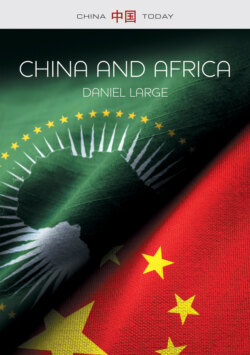Читать книгу China and Africa - Daniel Large - Страница 14
Conclusion
ОглавлениеIn just over two decades, China has gone from being a marginal, distant partner of Africa to attaining a leading position as an active participant in continental affairs, whose future importance is clear. These new trends mean more obvious disconnects between the official language of China–Africa relations and the actual realities of China’s more complex and consequential role, raising concerns about the different types of China’s actual, imminent and future power. China’s New Era ascendancy as a leading power in Africa and a self-proclaimed major power with ambitions to global leadership has been generating stronger political reactions in some African countries, as well as support from those who regard China as the future of globalization. In this way, the different aspects of China’s perceived and actual power now exert more obvious influences in relations.
The outline maps of Africa and China on display in Beijing in November 2006 should be impossible now, given how much has changed since then, including China’s more conspicuous and consequential footprint in the continent and the many ways different African actors have used, benefited from and sought to shape relations in their own ways. Nonetheless, for all the official claims about friendship and development of closer ties since then, periodic episodes suggest continuing ignorance and generate new friction and politics. A far more widely seen and high-profile example than the maps on the fringe of the 2006 FOCAC came in February 2018, when the China Central Television’s (CCTV) Spring Festival Gala, known as the world’s ‘most watched national network TV broadcast’, with up to one billion viewers that year, broadcast a comedy sketch that was supposed to celebrate China–Africa relations. 23 Instead, it provoked a storm of controversy over the use of blackface by a Chinese actress, a black performer in a monkey costume and the use of tribal African dancers and female attendants from Kenya’s Chinese-built railway linking Nairobi and coastal Mombasa. The sketch reproduced a narrative that was representative of China’s general approach to Africa, in which China is seen as a solution to the continent’s backwardness, and behind the performance was ‘a consistent top-down, ego-boosting effort to see and represent China as a way for Africa to enter modernity’. 24 The ‘racist and insensitive portrayals’ of Africans in the sketch was criticized, and there were calls for China to ‘incorporate racial awareness and sensitivity to the production of content by all its media outlets’.25
China–Africa relations are prone to attracting grand statements. The 1960s saw claims that ‘Red China’ had moved into Africa, ‘a major revolutionary outpost in a Sinocentric world’, and intended ‘to stay there’.26 More recently, many have argued that China can transform African development. From the days of Maoist revolution to the 2020 COVID-19 pandemic, commentary has tended to overstate China’s impact and underplay the formative influences of African protagonists. Nonetheless, today China’s relations with Africa are based on long-term goals; but this is a very different China, combining with all manner of African protagonists to be more consequential than ever.
